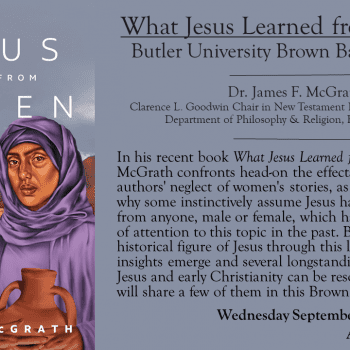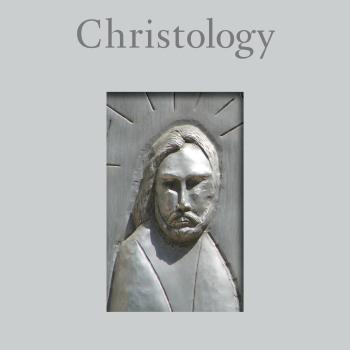While I was reading Andrew Perriman’s book In the Form of a God about early Christology (forthcoming from Cascade and available for preorder from the publisher and on Amazon), and his excellent and insightful treatment of Philippians 2:6-11, I found myself wondering whether anyone had suggested that the first verb, a participle, be understood in the present tense. In other words, Paul’s encomium to Christ follows on from his emphasis on being likeminded in relation to Christ:
Have the sort of mindset that we see in Christ Jesus who, even though he now has a godlike state of being, did not grasp at equality with God but instead made himself nothing.
At that point, to any observer, he looked like a servant. When he looked just like any human being, he humbled himself and was obedient in going to his death on the cross. It is that obedience that was rewarded by God exalting him to the status that sees him now existing in godlike form.
The book is rich with insights. Here is a longer form of the endorsement that I drafted for Perriman’s book, before shortening what I had to say to the appropriate word limit demanded by the publisher (on whose website you can read it in its more succinct official form):
In his latest book, In the Form of a God, Andrew Perriman has shown himself once again to be an incredibly creative and insightful thinker. While many scholars and laypeople seem convinced that the question of preexistence in New Testament Christology has been definitively answered (in one of two diametrically opposing ways), Perriman responds first by doing justice to the range of possibilities and nuances, and then articulating his own proposals and interpretations with impressive attention to detail. Whether you end up being persuaded by his arguments or not, if you are at all interested in the question you simply cannot afford to skip reading this book. He treats the views of those he disagrees with fairly. He never dismisses what others have to say but responds to their interpretations with close attention to detail. His book will lead you to ask new questions and make you think even if you have given sustained attention to the key Christological passages in the New Testament.
I also endorsed R. Alan Streett’s book Songs of Resistance. Here once more is a longer blurb I drafted before paring it down to the shorter one I submitted to the publisher.
While there have been many debates about whether any of the poetic passages in the New Testament are “songs” and about their meaning, most past studies have focused on them as lyrics alone without comparable attention to the role of music in human societies in general and the ancient context of early Christianity more specifically. In Songs of Resistance, R. Alan Streett relates the New Testament passages to relevant material as diverse as the hymns from the Dead Sea Scrolls, the Odes of Solomon, the Psalms, and hip hop. Relevant to anyone interested in Christianity or the Bible, this book will be of particular interest (and an especially rewarding read) for those interested in religion and music, resistance to empire, and/or the social setting of the earliest church. At each and every step of the journey, Streett provides detailed exploration of the cultural, historical, and literary context of early Christian songs and the theology expressed in them. The book has profound relevance as well for those seeking to continue the early church’s subversive message and practice in the present day.
Both of the above should be available in Denver at the American Academy of Religion and Society of Biblical Literature joint annual meeting.
Of related interest: If you’re not following Andrew Perriman’s blog, you should be!
Mike Bird blogged about Jewish monotheism and made videos on the subject. Philippians 2:6-11 as hymn also comes up in his post about religious visions in early Christianity.
Bob Cornwall blogged about the hymnic passage in Colossians 1:15-20.
Despite what this post says, there is no “biblical doctrine of the Trinity.”
In case you missed it, I answer the question of whether the Trinity is taught in the Bible here:
Finally, returning to the musical theme, here are a couple of biblical musical items you may have missed. First, Ellen Taafe Zwilich’s A Simple Magnificat:
Next, here is Florent Schmitt’s Danse d’Abisag, offering a treatment of a story that is rarely made the focus of a musical work.
There is a website dedicated to Schmitt’s music that includes a post about this work and where it fits among his orientalist biblical compositions. I have been loving the music at chapel at the University of Oxford’s Magdalen College. The many different settings of the Magnificat and Nunc Dimittis as well as the reading of other texts and chanting of Psalms has not only uplifted my spirits but engaged my brain academically in relation to my project about John the Baptist.













